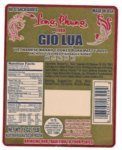{“post_id”:5323,”post_type”:”post”,”shortcode”:”peepso_postnotify”,”permalink”:”https:\/\/ask-bioexpert.com\/all\/california-source-of-romaine-lettuce-e-coli-outbreak\/”}
ruth
In an article By Lois Harris talks about the increase in numbers of food recalls due to packaging of issues. While most manufacturers are very careful about the prevention of pathogens, it’s the final step of packaging where mistakes happen, resulting in recalls that waste valuable time and money, and damage a company’s reputation. One major area of concern is mislabeling of allergens. Manufacturers large and small have had to deal with this kind of problem. In the two months between July 12, 2018 and September 12, 2018, almost 60% of the recalls recorded on the U.S. Food and Drug Administration website were due to undeclared allergens (milk, wheat, egg, soy, almond, and peanut). “Each recall is hugely costly – between $3 million and $10 million – and damage to the brand name is on top of that,” says Dr. Ruth Eden, President of BioExpert, an online resource for the exchange of expert information on food safety. Eden cites the introduction of the U.S. Food Allergen Labeling and Consumer Protection Act (FALCPA), which went into effect in 2006, for the increase in these types of recalls. The law is aimed at ensuring clearer labeling for consumers with food allergies. “The first line of defense is having labeling people who understand the nuances of the product, its ingredients and the requirements of the legislation,” Eden says, adding that problems can also occur further down the line when labels look the same and staff grabs the wrong ones or up the line when suppliers don’t declare allergens in the ingredients. @ https://globalfoodsafetyresource.com/packaging-training-crucial/
Food packaging training can be a key aspect of ensuring high food safety levels are maintained at your operation so you can protect consumer health and prevent a food recall.
ruth
The U.S. Department of Agriculture’s Food Safety and Inspection Service (FSIS) announced that Long Phung Food Products, Houston, Texas recalled an undetermined amount of ready-to-eat pork products that may be adulterated with Listeria monocytogenes. These items were shipped to distributors and retail locations nationwide. The FSIS was notified on October 22, 2018, of a cluster of listeriosis illnesses that were closely related. FSIS determined that there is a link between the Listeria monocytogenes illnesses and ready-to-eat pork products produced by Long Phung Foods. The epidemiologic investigation identified a total of four listeriosis confirmed illnesses between July 1, 2017, and October 24, 2018. On November 19, 2018, whole genome sequencing of investigative samples collected from Long Phung showed that the samples were closely related genetically to Listeria monocytogenes from ill people. @ https://www.fsis.usda.gov/wps/portal/fsis/topics/recalls-and-public-health-alerts/recall-case-archive/archive/2018/recall-116-2018-release
165368 C. Corporation, doing business as Long Phung Food Products, a Houston, Texas establishment, is recalling an undetermined amount of ready-to-eat pork products that may be adulterated with Listeria monocytogenes.
ruth
CDC is advising U.S. consumers not eat any romaine lettuce, and retailers and restaurants not to serve or sell any, until we learn more about the new outbreak. As of November 20, 2018, 32 people infected with the outbreak strain of E. coli O157:H7 have been reported from 11 states (California, Connecticut, Illinois, Massachusetts, Maryland, Michigan, New Hampshire, New Jersey, and New York), with most cases (10) in California. Of 26 people with information available, 50% were hospitalized, including one person who developed hemolytic uremic syndrome, a type of kidney failure. No deaths have been reported. The Public Health of Canada has identified 18 ill people infected with the same DNA fingerprint of E. coli O157:H7 in two Canadian provinces: Ontario (2) and Quebec (15). Six individuals have been hospitalized, and one individual suffered from hemolytic-uremic syndrome (HUS). Most of the individuals who became sick in Ontario and Quebec reported eating romaine lettuce before their illnesses occurred. Individuals reported eating romaine lettuce at home, as well as in prepared salads purchased at grocery stores, or from menu items ordered at restaurants and fast food chains. @ https://ask-bioexpert.com/all/dont-eat-romaine-lettuce-due-to-e-coli-cdc-warns/
https://ask-bioexpert.com/all/dont-eat-romaine-lettuce-due-to-e-coli-cdc-warns/

